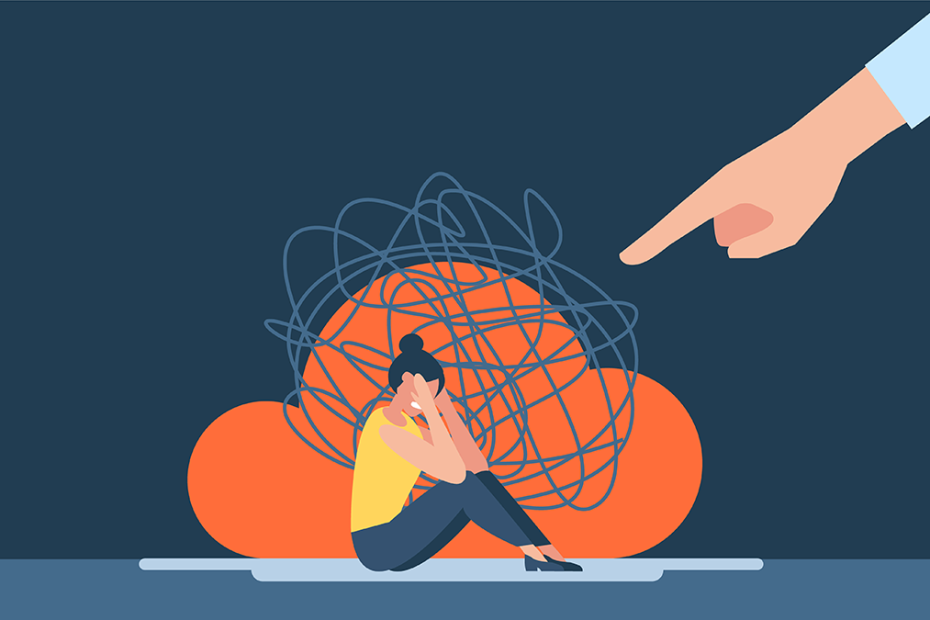psychiatristinbhopal's blog

Exercise is an essential part of
maintaining good physical and mental health. It’s not just about the physical
benefits but also how it can help your mind. The connection between exercise
and improved mental well-being has been studied extensively, with numerous
studies showing positive results for both adults and children alike. In this
blog post, we will explore how exercise boosts mental well-being by looking at
some of the science behind it as well as practical tips on incorporating more
movement into our lives.
Firstly, let's look at why exercise
is so beneficial to our minds: Exercise releases feel-good endorphins which
have a calming effect on us; increases blood flow to the brain which allows us
to think more clearly; improves sleep quality; reduces stress hormones such as
cortisol levels in our body; helps regulate mood swings associated with depressionor anxiety disorders, etc. All these factors
combined make exercising regularly an excellent way to boost your overall
well-being!
Now that we understand why regular
activity is important for improving one’s psychological state, let's discuss
ways you can incorporate more movement into your daily life: Start small if
needed – take 10 minutes out of each day just for yourself where you walk around
outside or do some stretching exercises indoors before bedtime (or any other
time during the day).
Also Read: Sleep disorder treatment in
Bhopal
Make sure that whatever type of
activity you choose suits your lifestyle best - there are plenty of options
available from yoga classes through online platforms like YouTube or joining a
gym near you if possible! Additionally, try doing activities together with family
members/friends – this could be anything from going biking together or playing
team sports like basketball/volleyball, etc. This will not only help keep
motivation high but also provide fun social interactions while being active!
Finally, remember that consulting a psychiatrist in Bhopalmight be necessary if
symptoms persist despite making changes in lifestyle habits such as increased
physical activity levels - seeking professional advice should never be
neglected when managing complex emotional issues since they require tailored
treatments depending on individual cases.

When it comes to dealing with mental
health, many people turn to their psychiatrist in Bhopalfor help. Psychiatrists
are highly trained professionals who can provide insight into the root causes
of mental health issues and offer tailored treatments that can help alleviate
symptoms. One such approach is the use of therapeutic tools; these are activities
or techniques that have been proven to be effective in treating a variety of
psychological disorders. In this blog post, we will discuss five therapeutic
tools recommended by psychiatrists as potential treatment options for those
struggling with their mental well-being.
The first tool is mindfulness
meditation, which involves focusing on one’s breathing and becoming aware of
physical sensations throughout the body without judgment or evaluation. This
technique has been found to reduce stress levels and increase overall
well-being through its ability to promote relaxation and self-awareness while
decreasing rumination over negative thoughts or emotions associated with
anxiety disorders like depression or PTSD (post-traumatic stress disorder).
Another useful tool is cognitive
behavioral therapy (CBT), a type of psychotherapy that focuses on identifying
patterns between thoughts, feelings, behaviors & environmental factors so
they can be better managed when faced with difficult situations in life. CBT helps
individuals learn how different aspects interact together & develop
strategies for managing them more effectively going forward - making it an
invaluable resource when looking at ways to improve your emotional regulation
skillset!
Also Read: Stress Treatment in Bhopal
Thirdly there's art therapy – this
form uses creative expression as part of its process where clients explore
various mediums such as painting/drawing/sculpture etc., allowing them access
to deeper parts within themselves that may not otherwise come out during
traditional talk therapies alone! Art therapists also work closely alongside
other professionals like psychologists/psychiatrists who specialize
specifically in working children too – providing much-needed support during
times need most desperately from all angles possible!
Fourthly there's music therapy; here
clients listen carefully to curated pieces chosen either by the therapist
themselves based on individual needs being addressed at the current session
time frame OR clientele select their own preferences depending upon mood
changes happening on momentary basis throughout the coursework itself - both
approaches having beneficial outcomes, leading towards improved quality life in
long term speaking terms altogether, regardless of the circumstances
surrounding at hand right now today!
Also Read: Sleep Disorder Treatment in
Bhopal
Finally, exercise has become
increasingly popular amongst practitioners due to its ability to release
endorphins, natural hormones responsible for producing a “happy” feeling after
completing the activity itself, thus helping combat any depressive tendencies
that might be present in a person at a particular instance, given a specific
context.

In today’s world, it is essential to
be resilient and have mental strength. Resilience helps us to cope with the
stress of everyday life, as well as any unexpected challenges that come our
way. Building resilience and becoming mentally strong can take time and effort
but there are some tips you can follow from a psychiatrist in Bhopalwhich will help you on
your journey.
1) Identify
Your Strengths –Knowing what we are good at gives us confidence in ourselves when facing
difficult situations or challenges. Take stock of all your strengths both big
and small so that when times get tough, you know exactly where to turn for
support or guidance from within yourself.
2) Accept
Change –Life is ever changing; sometimes these changes bring joy while other times they
may bring sadness or anxiety about the unknown future ahead of us. Learning how
to accept change without fear will make it easier for you to deal with whatever
comes next in life without feeling overwhelmed by uncertainty.
Also Read:Sleep Disorder Treatment in
Bhopal
3) Reach Out
For Support -Having a supportive network around you such as family members, friends,
colleagues, etc., who understand your struggles makes a huge difference when
trying to stay emotionally balanced during hard times. If needed seek
professional help from psychiatrists in Bhopal who specialize in helping people
build resilience through therapy sessions.
4) Practice
Self-Care -Taking care of yourself physically, mentally & emotionally should
always be a top priority if want to maintain balance & inner peace during
difficult moments. This could include taking regular breaks throughout the day,
eating healthy meals regularly exercising daily, etc. Allowing yourself time
off work also enables restorative sleep which helps rejuvenate body & mind
giving much-needed energy boost!
Also Read: Mental doctor in Bhopal
5) Develop
Healthy Habits -Establish habits like waking up early every morning, setting realistic
goals each week, practicing mindfulness activities, such yoga/meditation, going
outside more often, reading books instead of scrolling social media feeds, etc.
These habits create positive momentum over the long term enabling better
control over thoughts emotions behavior patterns overall well-being!
6) Stay Positive –It's easy to get caught up negative thinking spiral, especially under pressure, however, this only leads further away from the desired outcome; so focus on staying positive; even if the situation looks bleak, remember there's always hope, just keep believing!
7) Learn
From Mistakes –We all make mistakes it is part of being human important thing learn
from them move forward and not let the past define the present self use
experiences constructively to grow a stronger and wiser person with each
passing day!

Mental health is an important aspect
of our overall well-being, and for many people, medication plays a role in
managing their mental health. But what do psychiatrists want you to know about
the use of medications to treat mental illness? A psychiatrist in Bhopalcan help explain the
different types of medications available and how they may be used as part of
your treatment plan.
Medications are generally prescribed
by a psychiatrist or other healthcare professional when symptoms become severe
enough that lifestyle changes alone aren’t able to adequately manage them.
Medication can help reduce symptoms such as depression, anxiety, insomnia, or
obsessive-compulsive disorder (OCD). It is important that any medication
prescribed should be taken exactly as directed by your doctor; this includes
not skipping doses or taking too much without consulting with them first.
Also Read: Best psychiatrist in Bhopal
Psychiatrists also want you to
understand that there are potential side effects associated with some
medications used for treating mental illnesses such as weight gain, sleepiness,
and sexual dysfunction among others – so it’s important to discuss these issues
openly with your doctor before starting any new prescription drug regimen.
Additionally, while certain drugs may work quickly on some patients suffering
from milder forms of depression or anxiety disorders, others might need several
weeks before experiencing relief from their symptoms. This means patience is
key when beginning a course of psychotropic drugs – don't expect instant
results!
Moreover, psychiatristsemphasize the importance of combining
pharmacological treatments alongside psychological therapies like cognitive
behavioral therapy (CBT) which have been proven effective at improving
long-term outcomes for those struggling with various forms of conditions
including post-traumatic stress disorder (PTSD), bipolar disorder, etc. Lastly,
it's essential that anyone considering taking psychiatric medicines must
consult regularly -at least once every three months -with his/her physician who
will monitor progress closely & adjust dosages accordingly if necessary.
All in all, medication has an
undeniably crucial role to play in helping individuals cope better & lead
more productive lives but it's equally critical to remember never to take
anything without consulting a qualified medical practitioner first!
About the
Author:
Dr. Sanjeet Diwanis the foremost psychiatrist in
Bhopal, renowned for his exceptional expertise in mental health care. With over
15 years of experience, he has earned a stellar reputation for providing
compassionate and effective treatment to individuals facing various psychological
challenges. Dr. Diwan's commitment to patient well-being is evident in his
personalized approach, tailoring treatments to each individual's unique needs.
His dedication to continuous learning ensures he stays at the forefront of
psychiatric advancements. Whether it's depression, anxiety, or more complex
disorders, Dr. Sanjeet Diwan is the trusted choice for comprehensive and
empathetic mental health support in Bhopal.

Navigating Anxiety can be a difficult
and often overwhelming experience. Whether it's an occasional bout of mild
anxiety or something more serious, everyone experiences some form of anxiety at
one point in their life. Fortunately, there are strategies you can use to
better manage your anxious thoughts and feelings. A Psychiatrist in Bhopalis an excellent resource
for understanding the causes of your anxiety as well as providing tips on how
to cope with it effectively.
First and foremost, awareness is key
when it comes to managing your anxious thoughts and feelings; if you don't
recognize them then they have free reign over your mind! Pay attention to
physical sensations like increased heart rate or shallow breathing that may
indicate rising levels of stress/anxiety so that you can take steps towards
calming yourself down right away instead of letting those symptoms spiral
outwards into a full-blown panic attack later on.
Also Read: Stress Treatment in Bhopal
In addition, developing healthy
coping mechanisms such as deep breathing exercises or engaging in mindfulness
activities (like yoga) during times when things start feeling overwhelming are
also important tools for helping reduce the intensity associated with our
anxieties - this allows us time ‘to catch ourselves’ before our thoughts become
too powerful for us handle alone.
Finally, talking about what we're
going through is also extremely helpful; sharing stories with friends who
understand what we're experiencing helps normalize these emotions while giving
us insight into new ways others have managed similar situations which may prove
useful during moments where everything feels unmanageable. Additionally,
seeking professional help from a trained psychiatrist in Bhopalshould never be
discounted either - they not only provide invaluable support but offer up
specific techniques tailored specifically towards addressing individual needs
& concerns related directly back one's own unique situation.
All-in-all navigating through our
anxieties isn't easy but by being mindful & aware alongside utilizing various
coping skills (both self-created & professionally suggested) we will find
ourselves better equipped to deal with whatever life throws at us without fear!
About the
Author:
Dr. Sanjeet Diwanis the foremost psychiatrist in
Bhopal, renowned for his exceptional expertise in mental health care. With over
15 years of experience, he has earned a stellar reputation for providing
compassionate and effective treatment to individuals facing various psychological
challenges. Dr. Diwan's commitment to patient well-being is evident in his
personalized approach, tailoring treatments to each individual's unique needs.
His dedication to continuous learning ensures he stays at the forefront of
psychiatric advancements. Whether it's depression, anxiety, or more complex
disorders, Dr. Sanjeet Diwan is the trusted choice for comprehensive and
empathetic mental health support in Bhopal.

Therapy is a great way to work
through personal issues and gain insight into one’s life. It can be an
invaluable tool for those who are struggling with mental health, relationships,
or other challenges in their lives. But did you know that there are many more
benefits of therapy than just the ones we typically think of? Here are the top
five benefits of therapy as stated by the best psychiatrist in Bhopalthat you might not know
about:
1) Improved
Self-Awareness: Therapy helps us become more aware of our thoughts and feelings so we
can better understand ourselves and make healthier decisions in our lives. This
improved self-awareness also leads to increased confidence as well as improved
communication skills with others around us.
2) Stress
Reduction:
Therapy provides a safe space where individuals can talk openly about their
worries without fear or judgment from others. This allows them to process
stressors, develop coping strategies, and learn how to manage difficult
emotions effectively - all essential components for reducing overall levels of
stress.
3) Increased
Quality Of Life: Through therapy sessions, people often learn new ways they could
improve their lifestyle choices which may lead them towards greater happiness
and satisfaction overall. Whether it’s making dietary changes, taking up
exercise routines, or developing healthy habits like journaling - these small
adjustments have the potential to significantly enhance quality of life over
time!
4)
Strengthened Relationships: The therapeutic process often helps individuals identify
patterns within interpersonal dynamics which then allows them opportunities for
growth when it comes to improving relationships with friends/family members
etc. By working on communication styles & problem-solving techniques
together – couples & families alike will benefit from strengthened bonds
between each other!
Also Read: Depression Treatment in Bhopal
5) Enhanced
Mental Health Outcomes: Last but not least – regular visits (or even virtual
sessions) with w/a therapist have been linked with w/improved mental health
outcomes such as decreased symptoms associated with w/depression & anxiety
disorders etc. Furthermore – research suggests that engaging in psychotherapy
has positive effects on physical wellbeing too by helping decrease risk factors
associated w/heart disease/stroke etc. All this goes towards showing why
seeking out professional help is beneficial both mentally AND physically!

Mental health issues can be difficult
to manage, and it’s even more challenging when a loved one is struggling with
them. It can be hard to know how best to help your loved one through their struggles
without making matters worse. The most important thing you can do is show that
you care by being supportive and understanding of what they are going through.
Here are some other tips on how to help a loved one who is dealing with mental
health issues:
Also Read: OCD Treatment in Bhopal
1) Educate
Yourself- Learning about the different types of mental health disorders that your loved
one may have will give you an understanding of what they’re going through so
that you can better support them in their journey toward recovery.
2) Listen
Without Judging- Listening without judgment or offering advice shows your friend or
family member that someone cares enough about them to not just hear but also
understand where they are coming from mentally and emotionally at the moment.
This kind gesture will make all the difference for those suffering from
depression, anxiety, etc., as feeling heard helps build trust between two
people which further allows for open communication regarding any issue related
to mental illness in future conversations too!
3) Encourage
Professional Help- If needed, encourage professional help such as seeing a psychiatrist in Bhopalor getting medication
prescribed if necessary; this could potentially alleviate some symptoms
associated with various forms of psychological distress like depression/anxiety
disorder, etc. thus helping improve overall wellbeing over time. Additionally,
having access to resources available within local communities (like counseling
services) would provide additional support systems outside close friends/family
members who may not always have answers when faced with tough questions during
times of crisis!
4) Take Care
Of Yourself Too- Taking care of yourself while supporting another person's struggle
isn't an easy task; however, it's a vital part process because if we don't take
time out recharge our own batteries then eventually we won't able continue
providing same level emotional energy required sustain relationship long term
basis! So remember to practice self-care regularly whether it is exercise
sessions yoga classes meditation breaks whatever else might be needed in order
to stay healthy both physically and mentally throughout the entire experience
together!
About the
Author:
Dr. Sanjeet Diwan, a renowned psychiatrist in Bhopal,
offers expert mental health care with compassion and professionalism. With
years of experience, Dr. Diwan specializes in diagnosing and treating a wide
range of psychiatric disorders, providing personalized treatment plans tailored
to each patient's unique needs. Committed to promoting mental well-being, Dr.
Diwan is a trusted resource for individuals seeking top-quality psychiatric
care in Bhopal. His dedication to improving lives through mental health support
makes him a valuable asset in the community.

Mental health is an important part of
overall well-being, and it's essential to have conversations about it with a
professional. A psychiatrist doctor in Bhopalcan provide the expertise
and guidance needed for individuals dealing with mental health issues. Here’s
how they approach these conversations:
1)
Establishing trust: Psychiatrist understands that building trust between them
and their patient is key to having successful therapy sessions. They strive to
create a safe space where patients feel comfortable talking openly about their
feelings, thoughts, concerns, etc., without fear of judgment or criticism from
anyone else in the room – including themselves!
2)
Understanding symptoms: Psychiatrists take time during initial appointments to get
a better understanding of what’s going on mentally by asking questions related
to any current symptoms being experienced as well as past experiences which may
be influencing present behavior or emotions. This helps them form an accurate
diagnosis so they can develop an effective treatment plan tailored specifically
to each patient's needs.
3) Exploring
coping strategies: Mental health issues often come with difficult emotional
responses such as anxiety or depression that require coping mechanisms like
mindfulness techniques or journaling exercises which psychiatrists help
patients learn how best to use when necessary.
Also Read: Stress Treatment in Bhopal
4)
Developing goals together: Once the diagnosis has been made clear and both parties
understand each other more fully, psychiatrists will work closely alongside
their clients toward setting achievable goals. These could include anything
from managing stress levels through lifestyle changes, focusing on positive
thinking habits, improving communication skills within relationships, etc.
Ultimately this process should empower individuals who are struggling - giving
them back control over their own lives while also providing support along every
step taken towards recovery!

It’s no secret that self-care is
essential for our mental and physical health. But what exactly does it mean to
practice self-care? According to psychiatrists in Bhopal for adults, there are five essential
practices that should be part of everyone’s daily routine.
1) Get
enough sleep:Sleep is one of the most important components of good health, both
mentally and physically. Not getting enough sleep can lead to a variety of
issues such as difficulty concentrating, irritability, depression, or anxiety.
Aim for 7–8 hours each night so you can wake up feeling refreshed and ready for
the day ahead!
2) Exercise
regularly: Regular exercise has been shown to reduce stress levels while also
improving your mood and overall well-being. Even something as simple as going
on a walk every day can make a big difference in how you feel throughout the
day!
3) Eat
healthy meals:Eating nutritious foods helps keep your body functioning properly which
will help improve your mental state too! Try adding more fruits &
vegetables into each meal or cutting out processed snacks like chips &
cookies whenever possible – just small changes like these will have positive
effects on both your physical & emotional health over time!
4) Spend
time with loved ones:Spending quality time with people who care about us not only
boosts our happiness but also helps us build strong relationships which are key
when it comes to managing stress levels effectively long term.
Also Read: Stress treatment in Bhopal
5) Take
breaks from technology:Staring at screens all day isn't doing any favors when it
comes to taking care of ourselves - take regular breaks from checking
emails/social media, etc., even if it's just 10 minutes here or there during
lunchtime - that'll give yourself some much-needed space away from digital
distractions!
These five strategies recommended by
psychiatrists in Bhopal provide an easy way to start implementing self-care
into everyday life without having too much disruption along the way – so why
not give them a try today?

The role of nutrition in mental health is often overlooked,
yet it plays a crucial part in our overall well-being. Nutrition affects both
physical and psychological functioning; what we eat can directly influence how
we think, feel, and act daily. A balanced diet rich in essential vitamins,
minerals, and other nutrients can help to boost moods, reduce stress levels and
increase energy. Eating the right foods can also improve cognitive performance
by providing nourishment for the brain to function optimally. For those
struggling with their mental healthor looking for ways to maintain
healthy habits, understanding the importance of nutrition is key to achieving
optimal wellness outcomes.
When it comes to good nutrition several important elements should be included in one’s diet such as fruits and vegetables which provide essential vitamins like Vitamin B6 which helps produce serotonin (a neurotransmitter associated with happiness). Whole grains contain complex carbohydrates that give us sustained energy throughout the day while proteins from lean meats offer amino acids needed for muscle growth & repair plus concentration support when studying or working long hours at work.
Lastly,
Omega-3 fatty acids found mostly in fish oil are known as ‘brain food’ due to
their ability positively impact memory functions & emotional stability. All
these components combined create an ideal balance between physical & mental
well being allowing individuals to achieve more during their day without
feeling exhausted afterwards.
For those seeking professional assistance regarding
nutritional advice, consulting with a psychiatrist doctor in Bhopalwould be beneficial since they
specialize in treating patients suffering from various forms of depression,
anxiety disorders, etc alongside offering dietary guidelines tailored
specifically towards individual needs helping them reach desired goals faster
than ever before! In conclusion, proper nourishment has been proven time and
again to play an integral part in maintaining both physical & psychological
wellbeing so make sure you feed your body right today!
About the Author:
Dr. Sanjeet Diwanis a highly experienced psychiatrist practicing in
Bhopal. With his compassionate and patient-centered approach, he has been
helping individuals of all ages overcome mental health issues for many years.
Dr. Diwan offers a wide range of services including psychotherapy, medication
management, and cognitive-behavioral therapy to help patients manage anxiety,
depression, bipolar disorder, and other mental health concerns. His expertise
in the field of psychiatry has helped many individuals lead healthier, happier
lives. Dr. Diwan is committed to providing personalized and effective care to
each of his patients, and he strives to make a positive difference in the
community.
